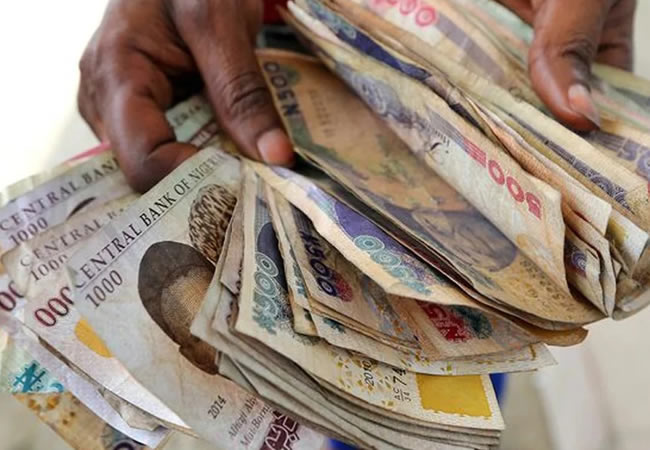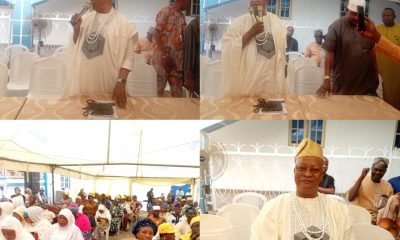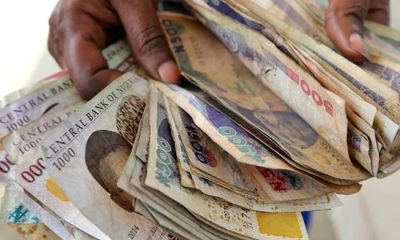News
Supreme Court Ruling: Banks Await Instruction On Old Naira Recirculation

There is an air of uncertainty among Deposit Money Banks as they await further instruction from the Central Bank of Nigeria over the recirculation of old N500 and N1,000.
The Supreme Court on Friday ordered that the old naira notes should be allowed to circulate along with the new notes until December 31, 2023.
Meanwhile, Deposit Money Banks have yet to communicate with their customers if the old N500 and N1,000 would be released into the economy, or the banks would only continue to release the new naira notes based on availability.
Similarly, millions of Nigerians, who have been hit by severe cash crunch, have expressed hope that cash will be available in the banks from Monday. They noted that following the apex court ruling, the CBN should expedite actions in making cash, both old and new notes, available immediately.
“There will be no excuse this time round because even if they say they don’t have the new notes, the old notes they took from us is with them, so they should simply bring them out,” a concerned customer, Doyin Adewumi, said.
When Punch contacted the Acting Director of Corporate Communications Department, CBN, Dr Isa Abdulmumin, declined to comment on the issue.
An executive of one of the banks who spoke on condition of anonymity said, “The CBN has not yet communicated to us, you know we are regulated by the CBN. However, I doubt if the CBN will return the old N500 and N1,000 notes. It may just continue to release the new naira notes as they become available.
“The banks have been collecting the old N500 and N1,000 notes. You know that the CBN is still trying to drive the cashless policy and will not want much currency in circulation. It is still giving out N200 old notes.”
Agusto & Co said in a report released on Friday titled ‘Redesign gone wrong? – Costly cashless’ on the unintended consequences of the policy that the hardest hit were the most vulnerable members of the population (the poor, the unbanked and the rural dwellers).
It stated, “Nigeria is still a largely cash-dependent economy, with informal economic activity accounting for approximately 65 per cent of GDP and being dominated by Micro Small Medium Enterprises.
“These MSMEs account for up to 96 per cent of businesses and 86.3 per cent of the national workforce. These are mostly cash-based businesses – particularly the micro-enterprises which account for 99.8 per cent of Nigeria’s 37.1 million MSMEs.”
While mobile phone ownership in Nigeria was estimated at 81 per cent by Enhancing Financial Innovation & Access, it said Internet penetration was still a mere 44.3 per cent.
“The Unstructured Supplementary Service Data, launched by banks and TelCos to enable deeper mobile banking penetration in communities lacking mobile data, has also been plagued by network related setbacks,” it stated.
THE PUNCH
-

 Opinion5 days ago
Opinion5 days agoDon’t Pull the Plug: Why Nigerians Are Pleading for the U.S. to Extend Its Police Training Program — and Why It Must Synergize With New Military Arrivals
-

 Crime5 days ago
Crime5 days agoVigilante Reportedly Shoots Colleague Dead In Plateau
-

 News3 days ago
News3 days agoRamadan: Osun Cleric Urges Compassion Among Muslims As Asejere Distributes Relief Materials To 537 Beneficiaries
-

 News2 days ago
News2 days agoOkemesi Dies After Slipping Into Coma





